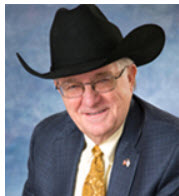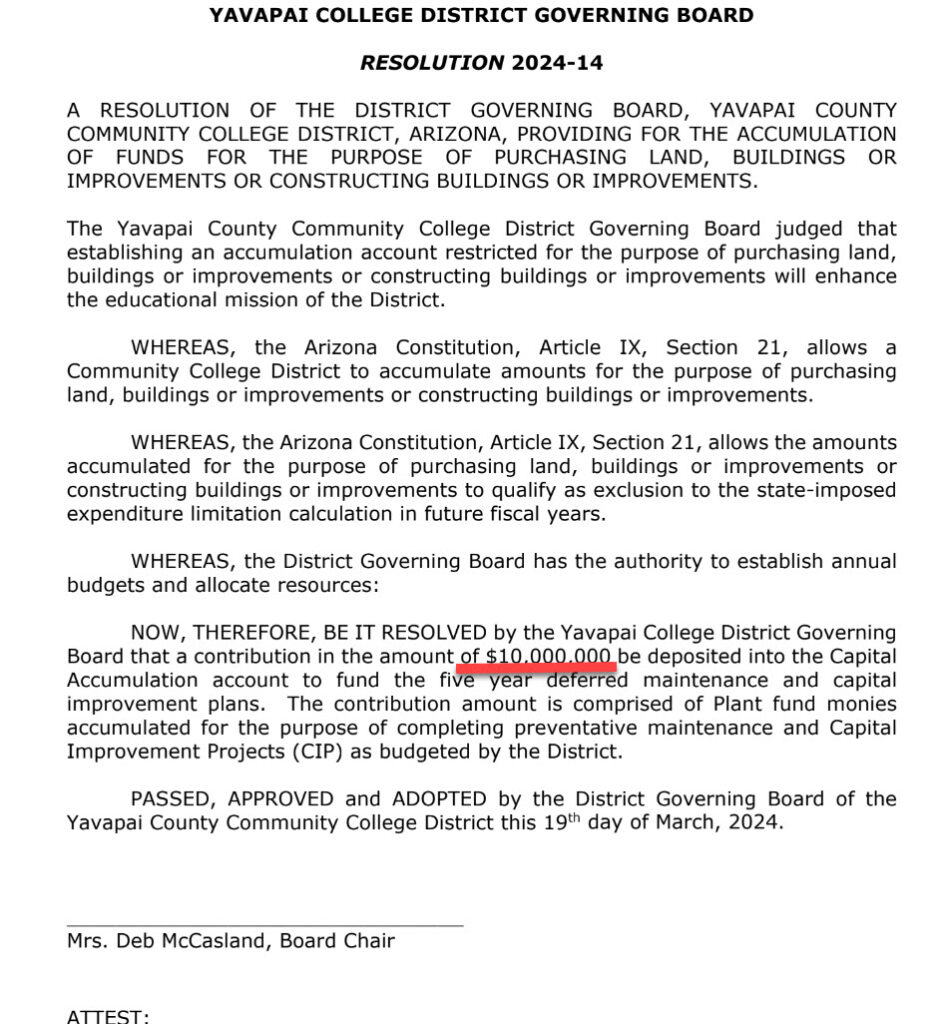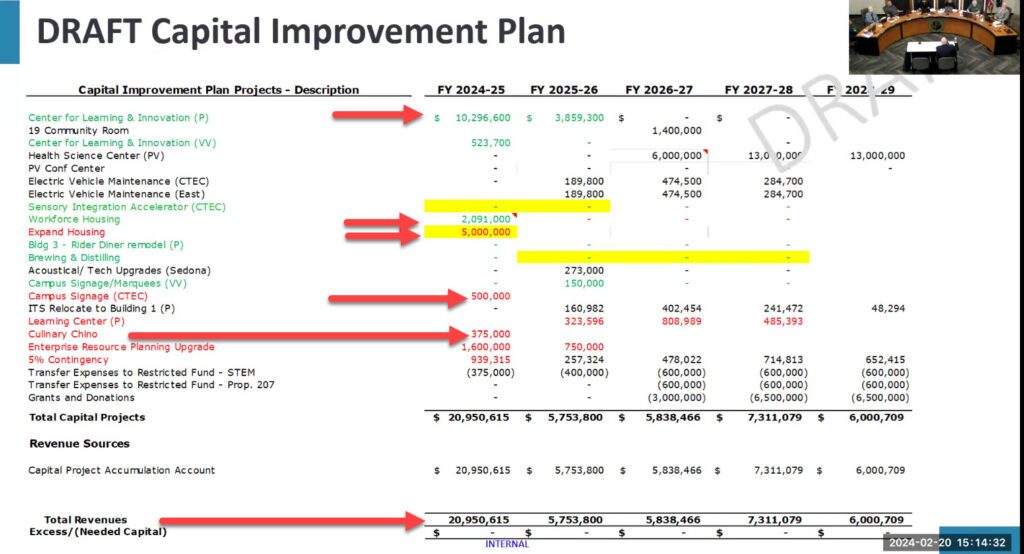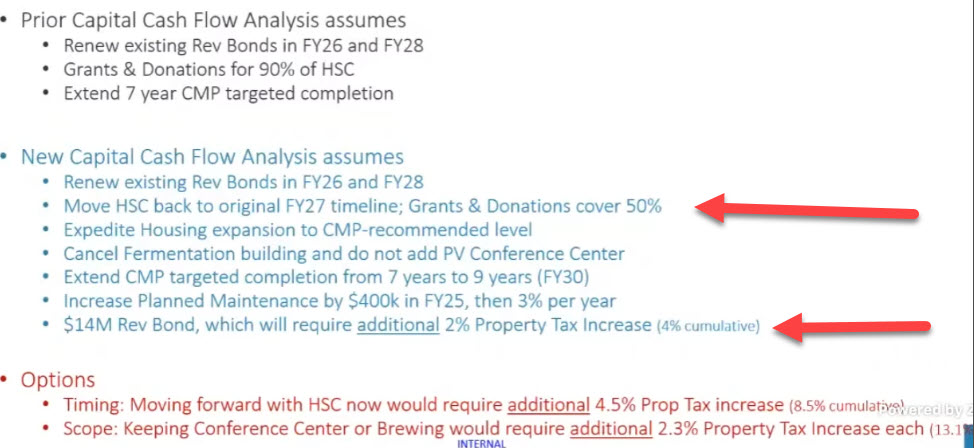Joined by Board lawyer who says it is a “terrific idea” and will lead to greater “transparency

Ray Sigafoos, District Governing Board member

Ray Sigafoos, District Governing Board member


 The Yavapai Community College District Governing Board meeting will be held at the Sedona Campus on Tuesday, March 19. The session will commence promptly at 1:00 p.m. Residents are invited to voice their concerns or opinions to the District Governing Board during the call to the public, typically held at the outset of the meeting.
The Yavapai Community College District Governing Board meeting will be held at the Sedona Campus on Tuesday, March 19. The session will commence promptly at 1:00 p.m. Residents are invited to voice their concerns or opinions to the District Governing Board during the call to the public, typically held at the outset of the meeting.
This meeting presents an important chance for community members to weigh in on the proposed 4% cumulative tax rate increase for next year’s budget. Your input matters, and this forum offers a platform for your voice to be heard.
Please note that in order to accommodate all speakers, the Board typically limits public comments during the open call to three minutes per person.
 The Yavapai Community College District Governing Board will hold what is described as a “Study Session” and then a “Business Meeting” at the Sedona Campus on Tuesday, March 19, 2024. The meeting is scheduled to begin at 1:00 p.m. and run until 4:00 p.m.
The Yavapai Community College District Governing Board will hold what is described as a “Study Session” and then a “Business Meeting” at the Sedona Campus on Tuesday, March 19, 2024. The meeting is scheduled to begin at 1:00 p.m. and run until 4:00 p.m.The Hispanic Association of Colleges and Universities (HACU) has named Yavapai Community College as an Emerging Hispanic Serving Institution. The College has repeatedly indicated a desire to become an official Hispanic Serving Institution (HSI), which is designated by the U.S. Department of Education. However, to be designed as such, it must reach a full-time equivalent Hispanic student population of 25%.
Over the last several years, the College has increased its efforts to serve the Hispanic communities in Yavapai County. The efforts include increased outreach and participation in community events, increasing academic and personal support services, career coaching, developing more access to resources, and creating a better sense of belonging through activities for first-generation college students, among others.
Being named an emerging HSI is important. It affords the College with opportunities to further its efforts by providing the college with additional Hispanic student leadership programs, webinars and learning opportunities, conferences, and other benefits and resources.
Once full HSI status is achieved, Yavapai College will join 572 other HSIs throughout the United States and will become eligible for federal funding opportunities.
 The first method involves the issuance of General Obligation (GO) bonds, a traditional avenue that necessitates a county-wide campaign to explain the necessity for such funds to Yavapai County voters. This approach mandates a transparent explanation of why substantial investments are directed toward certain areas within the County, potentially at the expense of others.
The first method involves the issuance of General Obligation (GO) bonds, a traditional avenue that necessitates a county-wide campaign to explain the necessity for such funds to Yavapai County voters. This approach mandates a transparent explanation of why substantial investments are directed toward certain areas within the County, potentially at the expense of others.SUMMARY: Yavapai Community College’s methods for raising money for major capital projects:
 Dr. Clint Ewell, Vice President of Finance at Yavapai Community College, presented the cash flow requirements for the upcoming academic year during the February 2024 meeting of the District Governing Board. He explained the financial needs of the Community College, detailing the amount of additional funding required and the intended allocation within the 2024-2025 budget.
Dr. Clint Ewell, Vice President of Finance at Yavapai Community College, presented the cash flow requirements for the upcoming academic year during the February 2024 meeting of the District Governing Board. He explained the financial needs of the Community College, detailing the amount of additional funding required and the intended allocation within the 2024-2025 budget.
To fulfill what it anticipates as its financial obligations, the Governing Board is being asked to consider approving a 4% increase in the County property tax rate, building upon last year’s 4% increase, and extending the deadline for final payments on existing revenue bonds. Furthermore, the issuance of a new $14 million revenue bond is deemed necessary. Dr. Ewell utilized the following slide to articulate the Community College’s fiscal position on this issue.

Dr. Ewell disclosed that due to the College’s inability to secure grant funding for 90% of the highly anticipated Health Science Center on the Prescott Valley Campus, he proposed a revised timeline for the project, postponing it from August 2024 to 2027. Under this new timeline, he specified that 50% of the funding would be sourced from the College’s own reserves, a significant increase from the original 10%, while the remaining 50% would be sought from grants and donations.
Additionally, Dr. Ewell recommended expediting the expansion of housing to align with the Campus Master Plan’s recommended capacity. However, as the College has unexpectedly removed the Campus Master Plan from its website, the exact financial implications of this recommendation remain unclear.